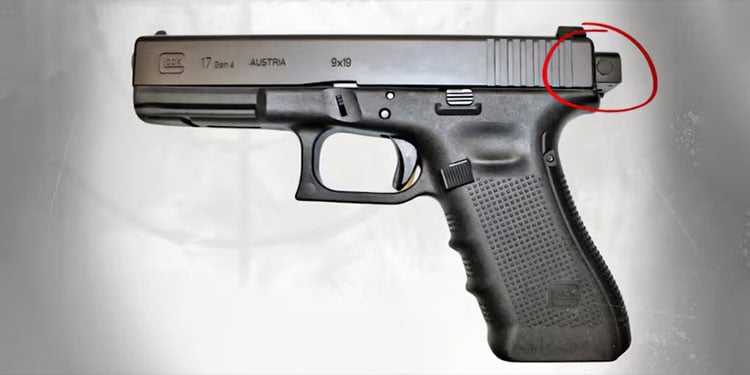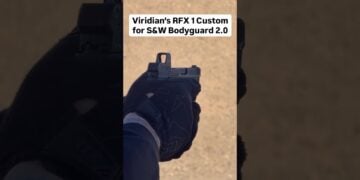SACRAMENTO, CA — Assembly Bill 1127, widely known as the “Glock Ban Bill,” has cleared key hurdles in the California Senate and now sits just one step away from the governor’s desk. The bill targets the sale of popular handguns — including nearly all Glock models and Glock-clone pistols — that can be readily converted into fully automatic firearms using devices known as “Glock switches.”
AB 1127 passed out of the Senate Judiciary Committee on July 15, 2025, in an 11-2 vote. This followed its earlier passage through the Senate Public Safety Committee on July 1 and its approval by the full Assembly on June 3 in a 58-17 vote. The bill is now headed to the Senate Appropriations Committee before facing a final vote on the Senate floor.
What AB 1127 Does
- Bans Sale After 2026: Starting January 1, 2026, licensed firearms dealers in California would be prohibited from selling, transferring, or delivering any semiautomatic pistol defined as a “machinegun-convertible pistol.”
- Targets Glocks and Clones: Specifically, this definition includes Glock pistols and Glock-style clones that use a cruciform trigger bar — a common internal component in Glock’s striker-fired design — which makes them compatible with illegal full-auto “Glock switch” devices.
- Criminal Penalties for Dealers: A first violation results in a fine. A second can lead to license suspension. A third is classified as a misdemeanor and results in mandatory license revocation.
- Expands Machinegun Definition: The bill revises California law to classify any Glock or Glock-style pistol outfitted with a pistol converter as a machinegun.
- Limited Exemptions: Law enforcement, military agencies, and gunsmiths conducting repairs are exempt from the sales ban.
Why It’s Called the “Glock Ban Bill”
Although Glock is not named explicitly in the bill, its technical definitions zero in on Glocks and the many popular polymer-frame pistols modeled after them — known as Glock clones. By focusing on the trigger bar design, the legislation effectively prohibits future dealer sales of nearly every model Glock currently on the California roster, as well as firearms like those made by PSA, Zev Technologies, and others that use similar fire control groups.
Community Reaction
The bill has ignited strong reactions among gun owners and Second Amendment advocates, especially in online forums like Reddit’s r/CAguns. Many users expressed frustration that California is moving to ban legally owned firearms based on how they could be misused, rather than targeting those actually committing crimes.
“Instead of cracking down on illegal switches, Sacramento wants to ban legal ownership altogether,” one Reddit post read.
“Buy what you want now,” another user warned, referencing the bill’s 2026 effective date.
Support and Opposition
The bill has the backing of major gun control groups including Moms Demand Action, Everytown for Gun Safety, and the Giffords Law Center, along with support from California Attorney General Rob Bonta.
Opponents include the California Rifle and Pistol Association (CRPA), Gun Owners of California, and the NRA. CRPA’s Rick Travis has publicly criticized the bill, arguing it targets law-abiding citizens and retailers while sidestepping the real issue: criminals illegally modifying firearms already banned under federal and state law.
What’s Next
- Senate Appropriations Review: AB 1127 will be reviewed for budget impact.
- Final Senate Vote: If it passes Appropriations, it will proceed to the Senate floor for a full vote.
- Governor’s Desk: If approved, Governor Gavin Newsom is widely expected to sign it into law.
Looking Ahead
If enacted, AB 1127 will take effect on January 1, 2026. While current owners will not be required to surrender their firearms, the bill will cut off legal dealer sales of most Glock pistols and similar models. A legal challenge is expected, and enforcement could be delayed depending on how the courts respond.
For California gun owners, AB 1127 marks another shift in the state’s ongoing effort to regulate firearm design and capability — even when the underlying criminal behavior is already illegal. As the bill nears its final votes, it serves as a flashpoint in the broader fight over firearm access and regulation in one of the country’s most restrictive states.










